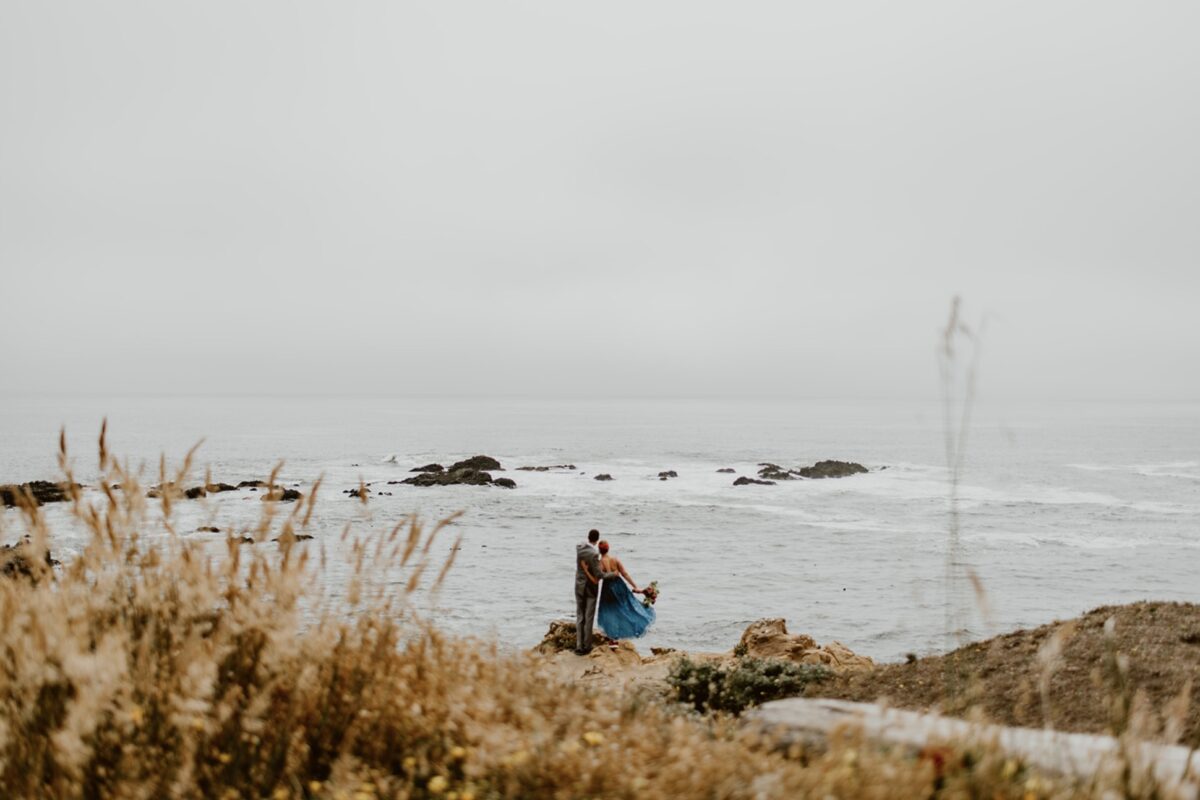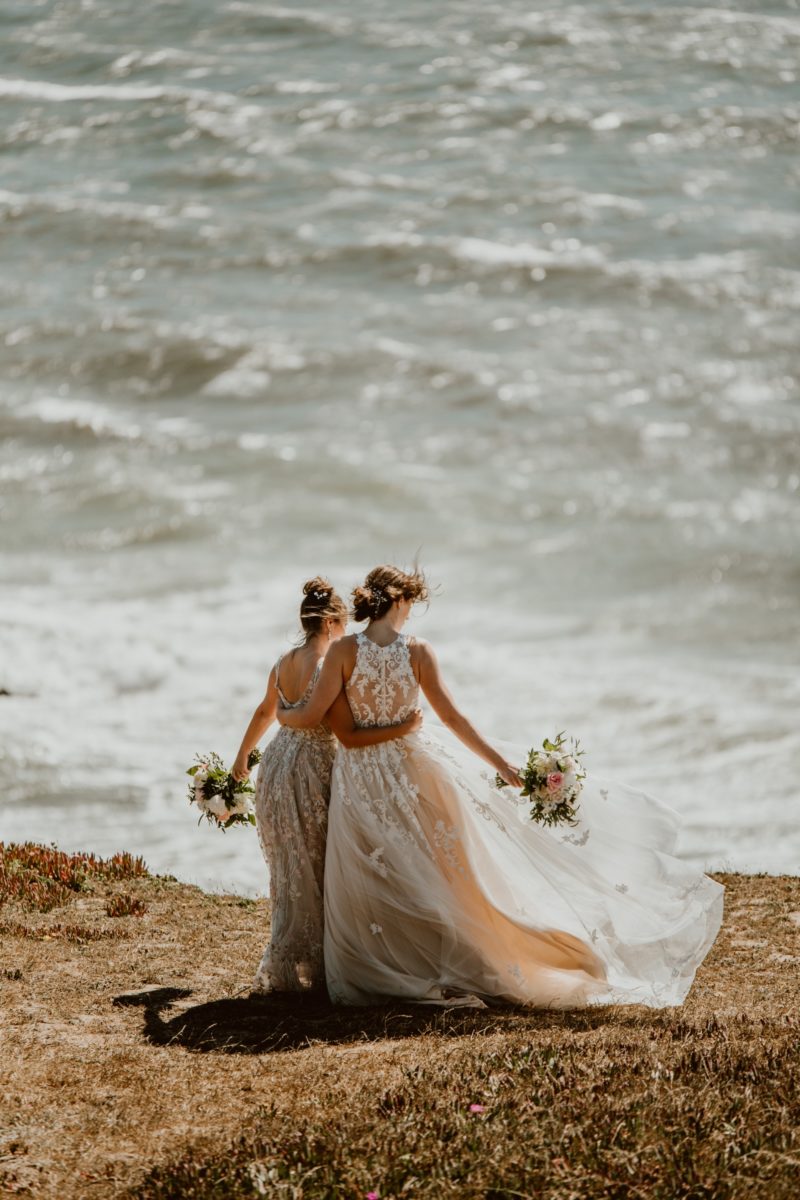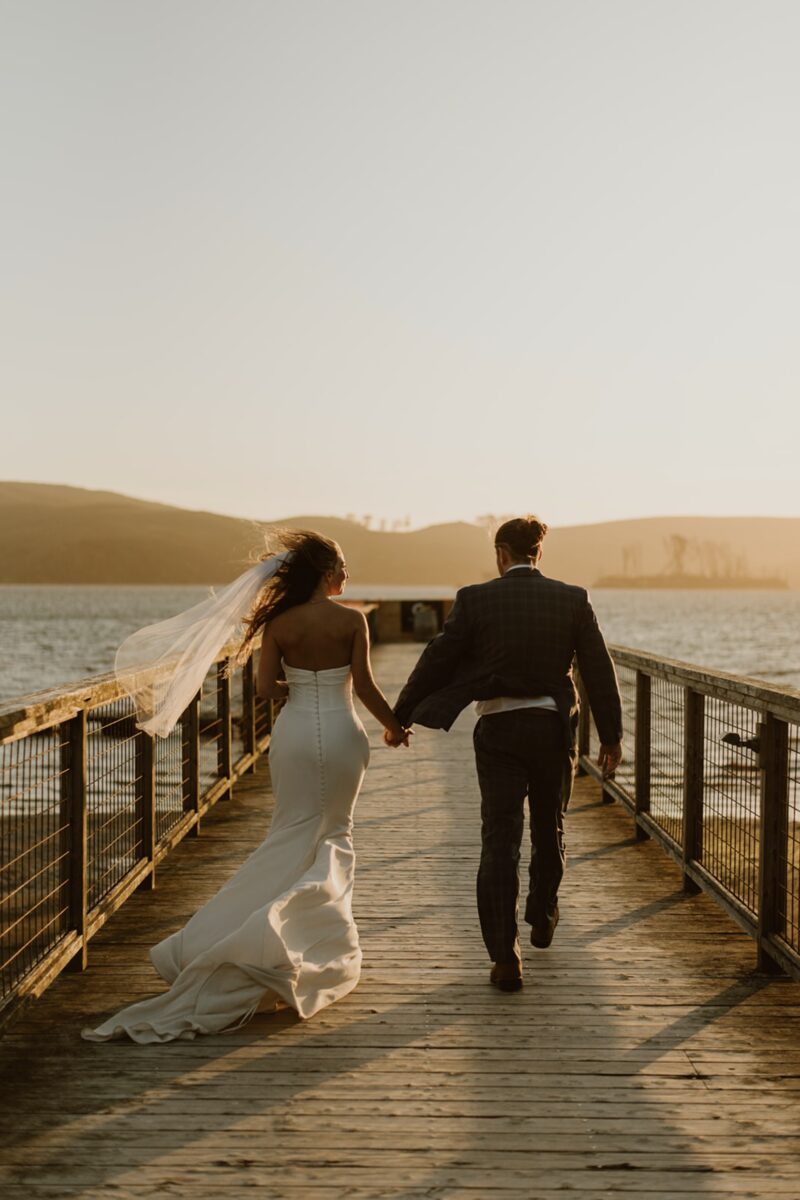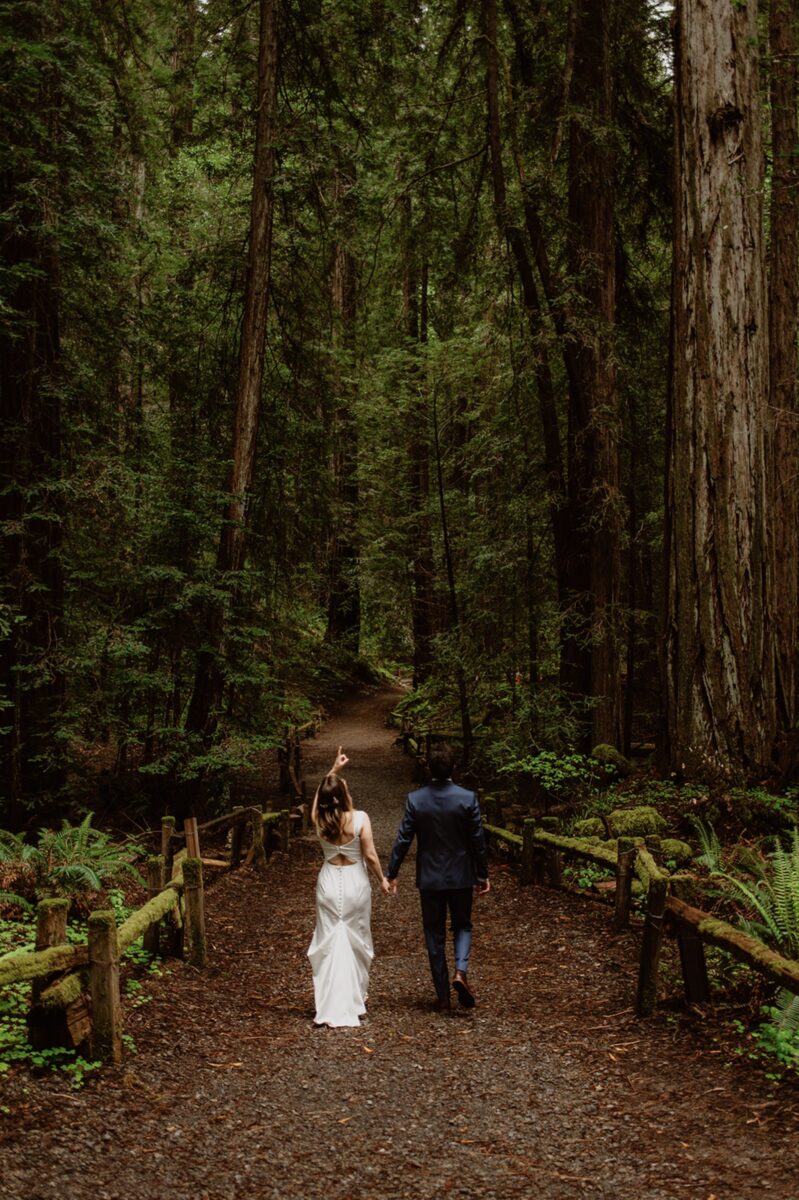There’s this moment that happens more often than you might think: when someone realizes the wedding they’ve been planning doesn’t actually feel like them anymore. Maybe it’s the person who’s been dreaming of a big celebration for years suddenly feeling exhausted by the thought of managing 150 guests. Maybe it’s the couple planning their wedding who realizes they’d rather spend their budget on a meaningful experience than a single day that feels more like a party for other people.
Here’s what I want you to know: your dreams are allowed to evolve. The wedding vision that excited you two (or five, or ten) years ago doesn’t have to be the one that serves you today. And feeling complicated emotions about this shift? That’s not confusion—that’s growth.
How to Know When Your Wedding Dreams Have Outgrown You
I discovered traditional wedding alternatives when I was in my mid-twenties, scrolling through Instagram one random afternoon. Suddenly, I was seeing couples getting married on mountaintops, in redwood groves, on empty beaches at sunrise. And I had this profound realization: I didn’t actually want the big traditional wedding I’d been dreaming about since childhood. That vision felt like wearing shoes a half size too small, but without realizing it: not painful enough to be obviously wrong, but never quite comfortable either. Discovering the world of elopements felt like finally trying on the right size shoe with an exhale of relief.
But here’s what I realized about why that original vision felt so right for so long: I’d spent decades absorbing our culture’s messaging about what weddings should look like, both through the media and my personal experience. White dress, church ceremony, all of your parents’ friends, reception with dancing until midnight. It wasn’t that I consciously chose that vision; it was just the only template I’d been given. But when I saw couples celebrating in ways that actually reflected their personalities and relationships? Everything clicked into place.
This happens more often than you might think. The version of celebration that felt exciting and meaningful at twenty-five might feel performative and exhausting at thirty. You’re not betraying your former self by outgrowing old dreams—you’re honoring who you’ve become now. The relief that comes when you stop forcing outdated visions and start designing something that actually fits your current life? That’s not settling. That’s emotional intelligence.

Why Feeling Sad About Changing Wedding Plans Is Actually Normal
Here’s something I wish more people understood: feeling sad about changing wedding plans doesn’t mean you’re making the wrong choice. In fact, it often means you’re making exactly the right one.
Think about it—if changing direction felt easy and uncomplicated, it might mean the original vision never mattered much to begin with. But when there’s weight to the decision, when you feel the complexity of releasing something you once wanted for something that serves you better now? That’s the hallmark of meaningful growth.
It’s completely normal to feel sad about letting go of dreams, even when you’re excited about the new direction. You might mourn the version of yourself who would have loved being the center of attention at a big celebration. You might feel wistful about specific moments you’d imagined—getting ready with your bridesmaids, your parent walking you down the aisle, that grand entrance moment. They don’t invalidate your new vision; they honor the dreams you once held.
What matters is knowing that two things can be true. You can feel grateful for how your original wedding dreams served you (giving you something to look forward to, connecting you with family and friends who were excited to celebrate) while also feeling relieved to be moving toward something more authentic. The sadness isn’t evidence that you’re doing something wrong; it’s evidence that you’re brave enough to choose growth over comfort.
How to Handle Family Reactions to Changing Your Wedding Plans
One of the challenges of changing wedding plans is that people often expect the decision to feel purely positive. There’s this assumption that if you’re choosing what you “really” want, there shouldn’t be any mixed emotions involved. But this perspective misses the emotional nuance of authentic decision-making entirely.
You’re allowed to feel excited about your new direction while also feeling wistful about dreams you’re releasing. Emotional maturity means holding space for contradictory feelings, not demanding that every positive choice feel purely positive. The complexity you’re experiencing isn’t confusion; it’s evidence that you’re making thoughtful decisions about something that matters deeply to you.
If you’re getting questions or pushback from family about your evolving vision (you’re not alone—39% of 2025 couples said parents, guardians, and other family members added more stress during planning than any other source), these conversations can feel particularly challenging when people have been involved in your original planning or have their own emotional investment in your celebration. The key is remembering that you’re not responsible for managing everyone else’s feelings about your choices.
If you’re struggling with how to communicate your evolving vision to loved ones, this post about explaining elopement choices to family offers specific scripts and support for navigating those conversations with compassion.

Will I Regret Choosing a Small Wedding Over a Big One?
This is probably the underlying fear I see most often from couples in Facebook groups and Reddit threads who are changing wedding plans—the worry that you’ll look back years from now and wish you’d done something bigger or more traditional. Let me offer some perspective on this, both from my professional experience and personal observation.
In my years of photographing intimate weddings and elopements, I’ve worked with plenty of couples who initially planned traditional weddings (or did that in a previous marriage) before shifting to elopements or micro-weddings. I don’t know of a single couple I’ve worked with who expressed any regret about choosing smaller celebrations. The overwhelming majority tell me it was the best decision they made—that their wedding day felt authentically theirs in a way a larger celebration never could have.
More broadly, I’ve noticed that couples are far more likely to regret having a wedding that felt performative than they are to regret having one that felt authentic, regardless of size. The couples who say they wish they’d done something different? They’re usually the ones who felt like they were playing a role instead of actually experiencing their celebration (think of the people you know who described their wedding day as a blur they barely remember).
My own experience supports this too. When I got married in the redwoods with just our immediate families present, there wasn’t a single moment where I thought, “I wish we’d invited more people” or “I wish this felt more like a traditional wedding.” Instead, I kept thinking how perfectly the day reflected who we actually are as a couple: nature-loving, intimate, more interested in deep connection than big performance.
Trust your current knowing. The clarity you’re feeling about what you want now isn’t temporary confusion—it’s wisdom. You’ve grown into someone who knows themself better, and that person deserves a celebration that honors who they’ve become.


How to Design a Wedding That Actually Feels Like You
Here’s the beautiful truth about releasing old wedding dreams: it creates space for something entirely new to emerge. When you’re no longer trying to fit into a template that never quite felt right, you get to ask different questions. Instead of “How do we make this traditional format work for us?” you can ask “What would celebrating our love look like if we designed it from scratch?”
This is where the real creativity begins. Maybe you want to spend your wedding morning hiking to your ceremony location, or have your first dance in an empty vineyard at sunset, or exchange vows with just the two of you before joining family for dinner. Maybe you want to wear comfortable shoes and take breaks to actually enjoy your food. Maybe you want to design a celebration that feels like the best version of a weekend you’d spend together anyway—elevated, intentional, unforgettable.
You get to want something completely different from what you’ve seen before. Your new vision doesn’t have to make sense to anyone else; it just has to feel authentic to you. How freeing is that?
The shift from anxiety about “doing it right” to excitement about “doing it authentically” changes everything. The planning process becomes enjoyable instead of stressful (really). The anticipation becomes joyful instead of overwhelming. And the wedding day itself becomes an experience you’re living rather than a performance you’re giving.
Ready to explore what your authentic wedding celebration might look like? I’d love to help you design something that feels completely true to who you are now. Head here to get started!